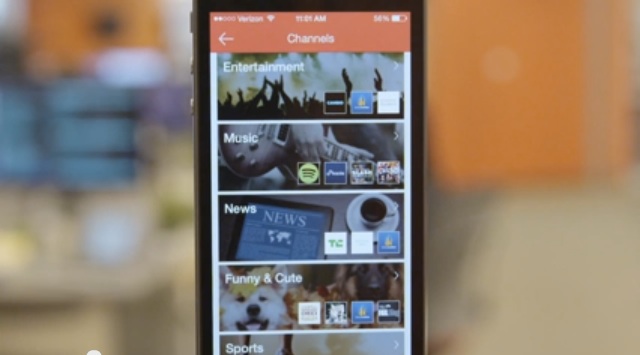Mobile messaging company Tango is announcing a new way for companies like Spotify and 500px to push updates and content to consumers through a service called Tango Channels.
At first blush, this might sound like a new ad program, but that’s not exactly it. Turns out that Tango already runs in-stream ads through a partnership with Twitter-owned MoPub. The new channels, on the other hand, aren’t ads per se, but more akin to Facebook Pages — a product that gives brands a home on the service.
Co-founder and CTO Eric Setton said that things like Tango’s Spotify partnership and its gaming platform have shown that Tango is a great place for users to share content, so Tango Channels expands that idea with a larger group of partners.
It’s an opt-in system, where users will be able to browse different categories like Entertainment, News and Sports, then subscribe to individual channels. Updates from those channels will then show up in users’ feeds, and they can directly drop that content into their chats. Besides the companies I mentioned above, the initial partners include Vevo, Dailymotion, Getty, 8tracks, WhoSay, musicians OK GO and Slash, and AOL. (AOL owns TechCrunch, and I’m told there will be a TechCrunch channel in Tango.)
When asked how the relationship between users and brands will be different on Tango compared with other social media, Setton told me: “Everybody’s noticed that Facebook’s organic reach has declined. Basically, there are so many pages that it’s difficult to surface out of the noise. So I think that it’s interesting to be present on platforms that already have hundreds of millions of members, but to be early to show yourself to that audience.”
To be clear, Tango will be making money from these channels indirectly, so it continues to run ads in the feed. Plus, Setton argued that the channels will drive engagement and downloads for Tango’s partners, which in turn will encourage them to pay for Tango ads.
Tango, by the way, announced a $280 million round led by China’s Alibaba earlier this year. The company said at the time that it has 200 million registered users, with 70 million active each month.
